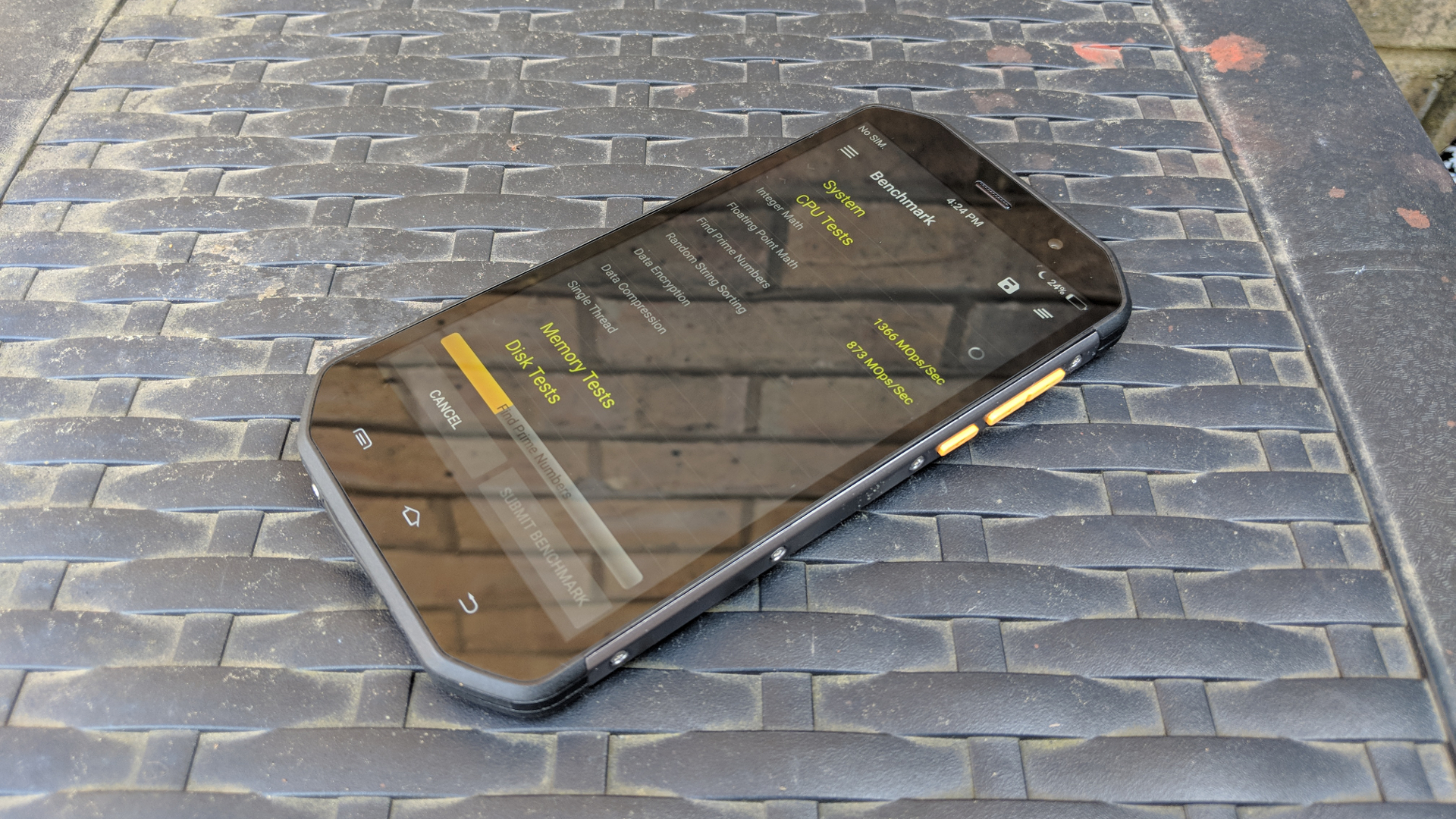TechRadar Verdict
This is a decent mainstream rugged smartphone that packs a few good and bad surprises. But for us, ultimately, its design and 64GB of on-board storage outweighs its lack of performance.
Pros
- +
Great design
- +
Super-thin
- +
Affordable for a 64GB model
Cons
- -
Poor performance
- -
No status lights
- -
No programmable buttons
- -
Lacks NFC
Why you can trust TechRadar
E&L is a newcomer to our site, a more obscure Chinese manufacturer (known elsewhere as Elongmobile) that specializes in rugged smartphones. Launched late in 2017, the S60 is the first of its products to reach our labs, and this IP68 rated mobile holds plenty of promise, but can it truly deliver?
Online Chinese retailer, Gearbest, sent us the sample and sells the E&L S60 for just over £160 (around $215) at the time of writing. Note that, while this price includes delivery, it is exclusive of any taxes that may be levied by HMRC or the courier companies on behalf of the vendor. Want to buy tech from online Chinese retailers? Read this first.
Design
The S60 (not to be confused with the Cat S60 or the Doogee S60) is one of the better designed IP68 smartphones out there. It is surprisingly thin (less than 11mm) and light (183g) for a rugged smartphone. There’s no funny business here; you won’t find any curves or a glass back. The materials used are hardened plastic (with a rubber finish), metal (an aluminum alloy frame), and glass for the screen and lenses.
A camera plus fixed navigation buttons can be found at the front, and for some reason, the position of the buttons is reversed (the back button is on the right of the home button, rather than the opposite way round which we’re used to). There are no status lights, which might disappoint some.
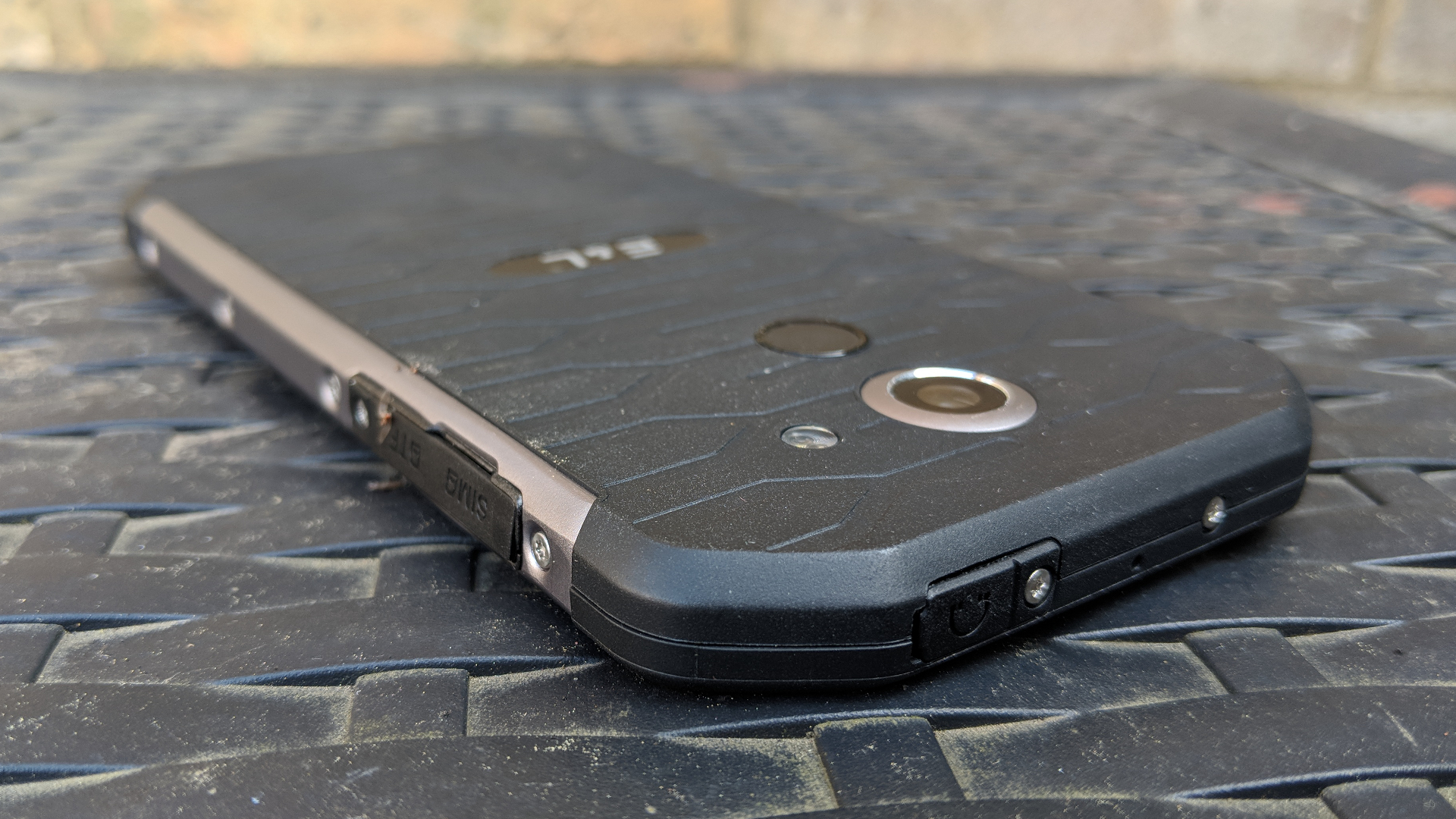
A dual SIM tray can be found on one side and accepts an additional microSD card. There’s an audio port on top, a microUSB connector at the bottom, and the ubiquitous power button and volume rocker on the other side, all of which are decked out in yellow.
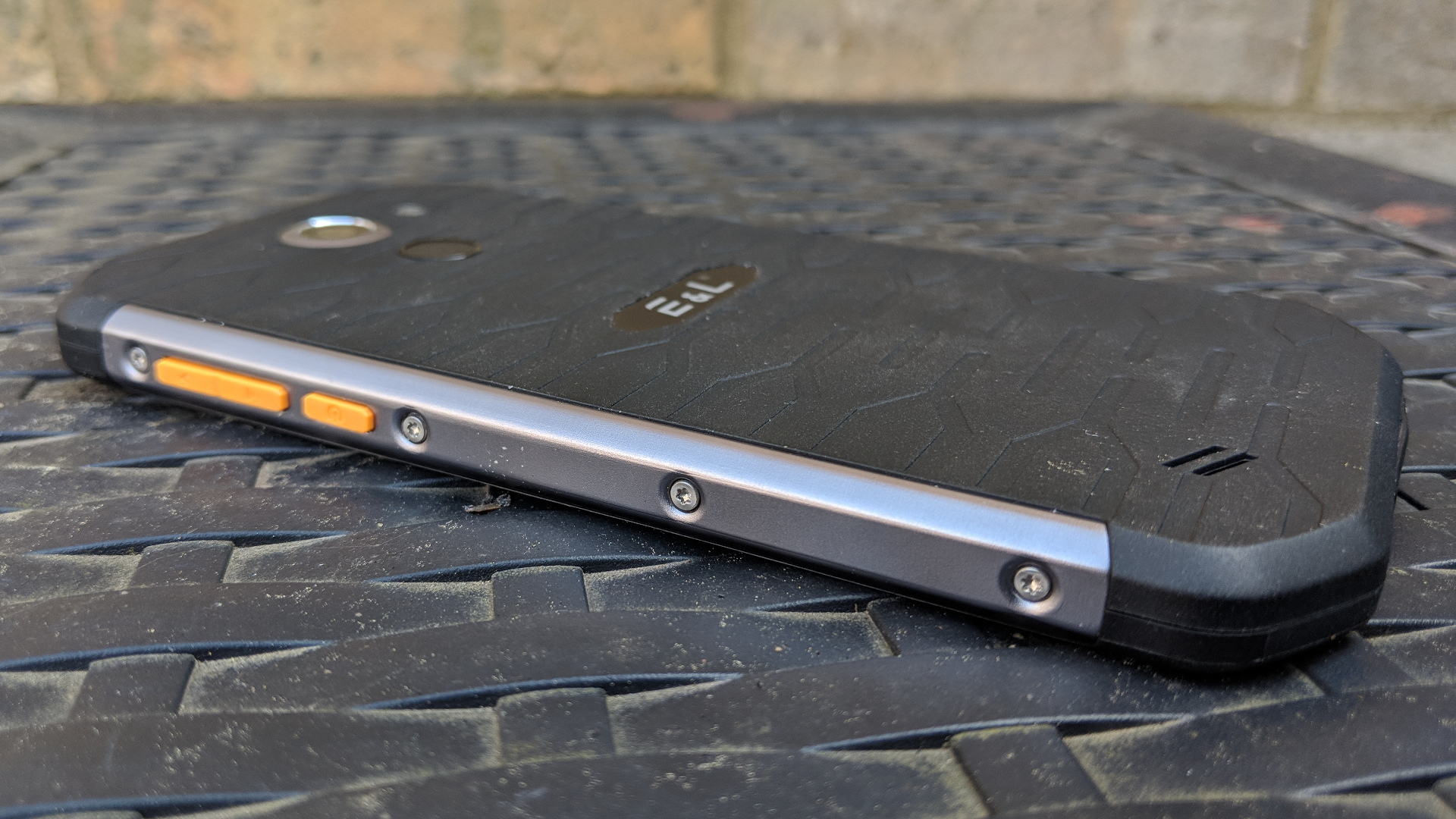
There’s no dedicated camera button and no programmable/SOS buttons – remember that all the ports are covered by flaps.
The E&L logo, a speaker grill, a single camera sensor and a tiny fingerprint sensor are all located on the rear, with said back sporting a nice textured surface.
CPU: Mediatek MT6753
GPU: Mali-T720
RAM: 3GB
Storage: 64GB
Screen size: 5.5-inch
Resolution: 1920 x 1080
Weight: 184g
Dimensions: 157 x 82 x 10.9mm
Rear camera: 13MP
Front camera: 8MP
OS: Android 7
Battery: 3Ah
Specifications
This is clearly an entry-level – or lower mid-range – rugged smartphone with a few nice surprises for a device priced so keenly.
The octa-core processor, a Mediatek MT6753, is far less capable than other devices we’ve reviewed in the past, but it should still be enough for most non-gaming tasks.
Likewise, 3GB of RAM and 64GB of storage should allow the S60 to work more comfortably than other devices in the same price range, which often come with 2GB of RAM and 16GB of storage. The Full HD display is a Gorilla Glass 3 affair, and the phone itself is IP68 rated, as mentioned, and MIL-STD-8710G certified.
The device supports dual SIM, dual standby and a microSD card – all three at the same time. As expected, it comes with 802.11n Wi-Fi, Bluetooth 4.0 and a dual navigation system, but no NFC. The S60 is powered by a 3,000mAh battery.
Here’s how the E&L S60 performed in our suite of benchmark tests:
Geekbench: 621 (single-core); 2,576 (multi-core); 1,911 (compute)
Antutu: 45,818
PCMark (Work 2.0): 2,917
Passmark: 4,013
Passmark CPU: 69,672
Androbench (sequential): 232 (sequential read); 130 (sequential write)
Androbench (random): 18 (random read); 11 (random write)
3DMark Slingshot Extreme: 206
3DMark IceStorm Extreme: 4,566
HWBot Prime: 3,481
In use
The S60 runs Android 7.0 with E&L’s very own iOS-inspired overlay with the usual Play Store and a proprietary App Store. There’s a compass app and a notes one, although you don’t get the full set of Google Apps, you need to download them manually.
The screen of the S60 was not as bright as we’d like it to be, and the glass was definitely non-oleophobic, which resulted in plenty of smudges. We didn’t encounter any major incidents of lag or sluggishness in our testing of the device.
All in all, the S60 performed as well as rival phones that use the same hardware. Note that you can also enable a feature called Duraspeed, which speeds up foreground apps at the expense of those running in the background.
The competition
There’s no rugged smartphone in this price range (around £160 – that’s about $215) that can deliver two of the S60’s biggest selling points: a massive 64GB of on-board storage and a full HD display.
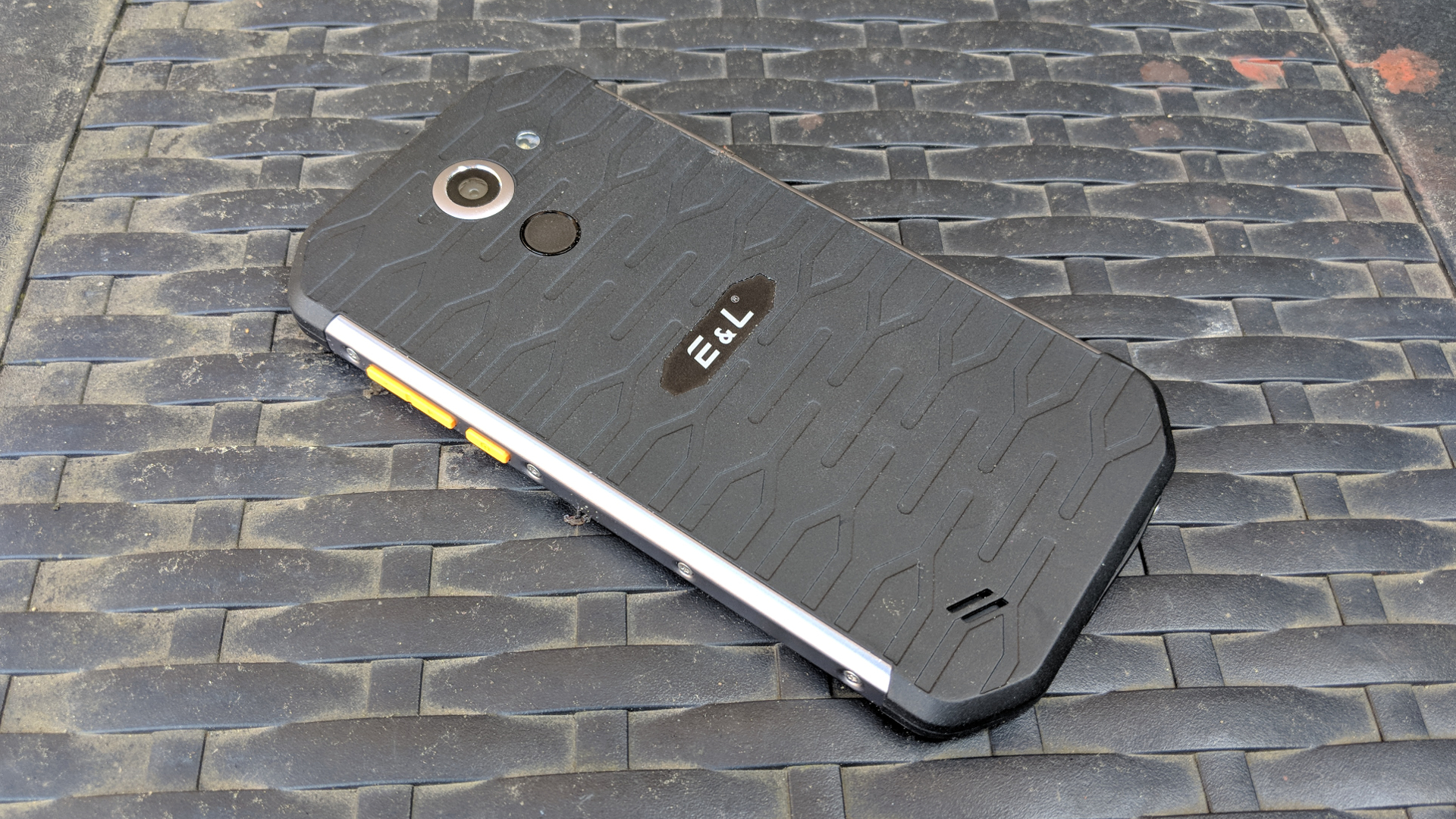
The Uhans K5000 is cheaper and sports a much bigger battery. Its lower screen resolution and smaller display mean that it will possibly have a much better battery life. It has only half the internal storage, though.
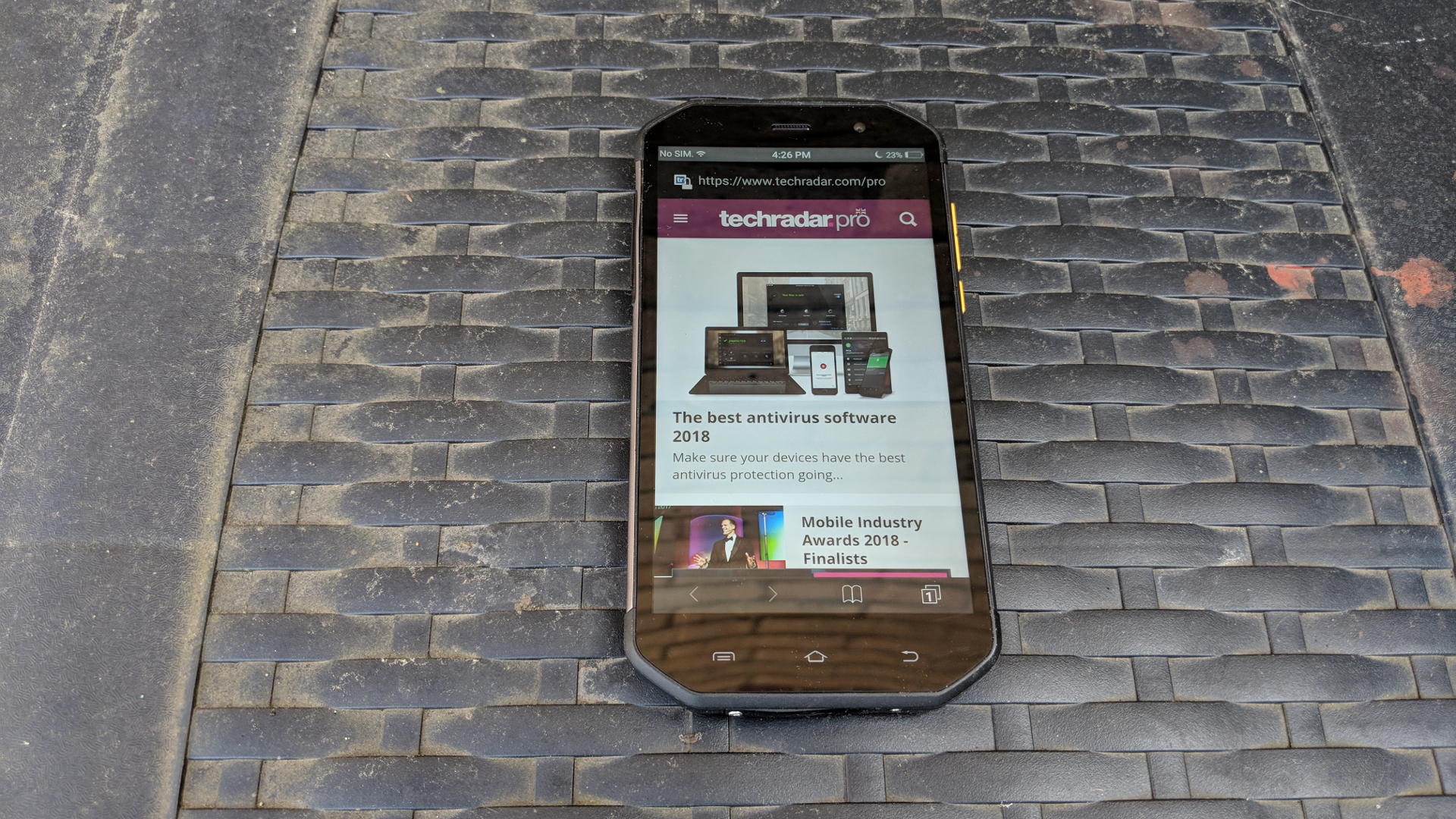
The Homtom Zoji Z8 is a tad cheaper and has a faster processor, better cameras and 4GB of system memory. The screen is smaller and is only HD, but expect it to last much longer thanks to a bigger battery, and its OTG feature which allows it to be used as a power bank.
If your budget doesn’t extend that far, then the Ulefone Armor might fit the bill. It has a smallish HD display (4.7-inch), half the on-board storage and an older version of Android. However, features like an SOS key and proper physical keys – and NFC – make it a great all-rounder device.
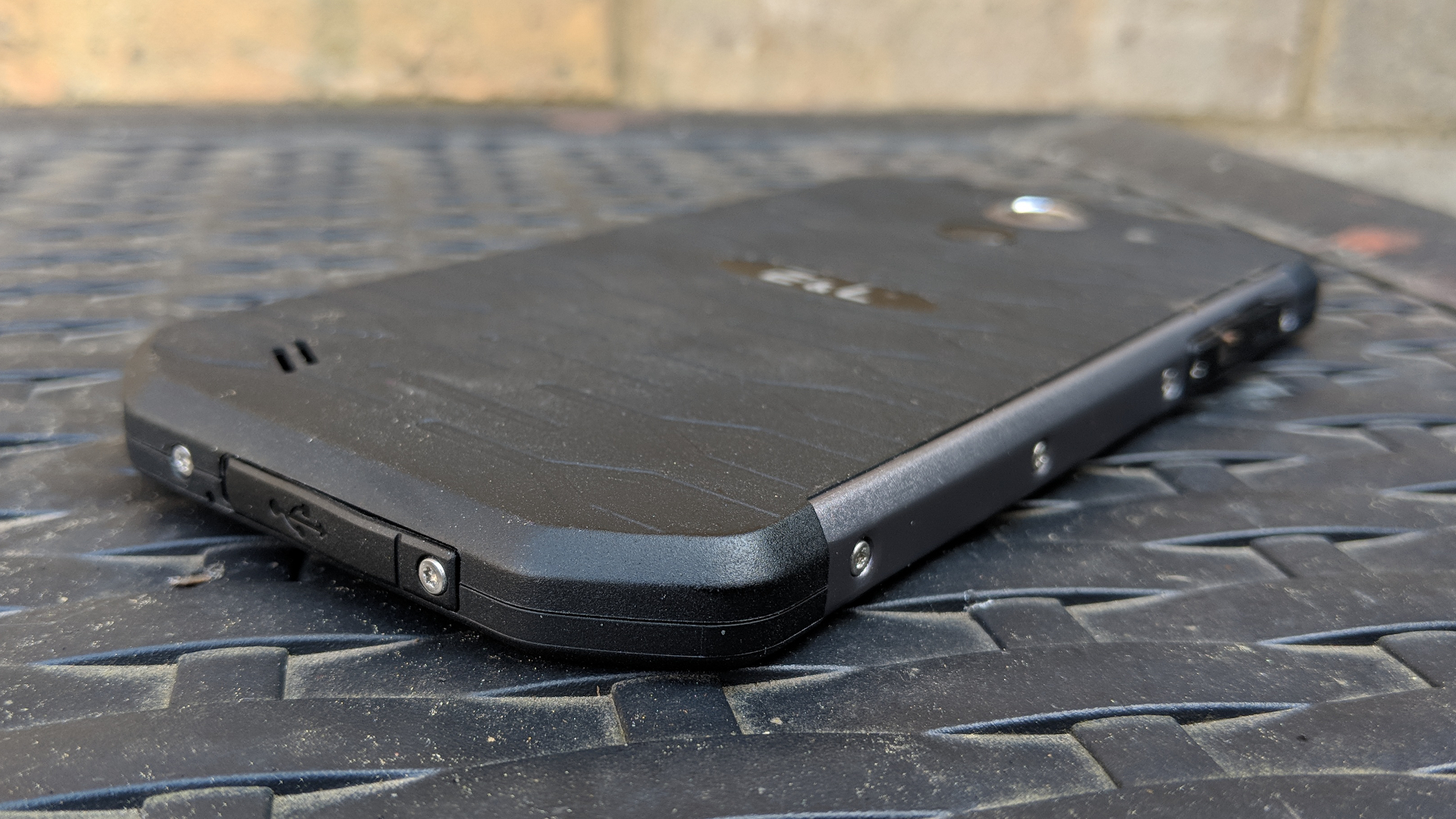
Final verdict
The E&L S60 is a very likable handset that is very keenly priced. However, we found the device lacking when it comes to sheer performance, not to mention the features we’d expect to find on a rugged smartphone (status lights and programmable buttons).
Like most of the competition, the battery is non-removable, and the hassle of sending back a defective device to China could leave you tearing your hair out – and furthermore, the chances of having a firmware update delivered soon are minimal, to say the least. But if you can live with these shortcomings then the S60 has a lot to offer.
- We’ve picked out the best rugged smartphones

Désiré has been musing and writing about technology during a career spanning four decades. He dabbled in website builders and web hosting when DHTML and frames were in vogue and started narrating about the impact of technology on society just before the start of the Y2K hysteria at the turn of the last millennium.
